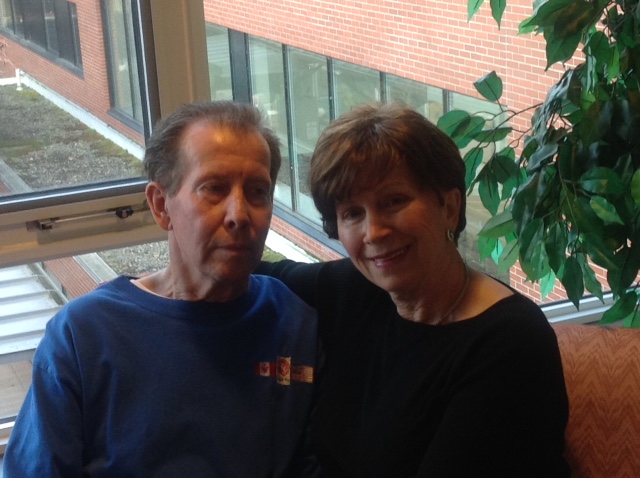One in five Canadians aged 45 and older are caregivers to seniors living with long-term health problems. This means that while you are a caregiver, you likely know others who are too. Caring for a family member can be a rewarding experience but it’s also common to feel physically and emotionally exhausted. It may seem difficult to ask for help, but it’s important to remember that you aren’t alone.
The Alzheimer Society offers support groups, counselling, workshops and other resources in communities across Canada. They can also connect you with day programs or respite care when you need a break. Access to support in your community and from friends and family can help you feel good about the care you provide.
Read Rina’s story, and to find your local Alzheimer Society and more information about Alzheimer’s disease and other dementias, visit: https://www.alzheimer.ca/
Rina Clark was a self-described people person before becoming a caregiver for her husband David, who has Alzheimer’s disease. Twelve years later, Clark is still very social, with a close group of friends who have “stood by me and propped me up,” she says.
The fact she’s the same person she was before David’s diagnosis may seem self-evident. But it’s a message society often forgets, says Clark, 68. Caring for someone with dementia can be all-consuming, but it isn’t all-defining.
That’s not to say Alzheimer’s disease hasn’t taught her important and often difficult lessons. For the first six months after David’s diagnosis, she couldn’t even say the word Alzheimer’s.
“David was a high school physics, chemistry and calculus teacher,” says Clark. “I called him my walking encyclopaedia. I used to joke I married him for his brains.”
Watching his facility with numbers and words deteriorate was especially hard. So she decided she would “build memories” for him. They travelled to Egypt to see the pyramids, to China to see the Great Wall, and went on safari in east Africa.
In between, she learned all she could about drug trials and enrolled him in some of the more promising ones. She identified the best Alzheimer’s doctors and got him on their patient lists, even if it meant regular trips from their home in Sault Ste. Marie to Toronto.
“I was always trying to control it, but I couldn’t do it,” she says. “I learned life is a series of adjustments with Alzheimer’s disease.”
Instead of trying to control things, she now feels the way forward is to let her friends help her, and help David. One friend picks up David every Wednesday for an outing. Someone else stops by after her yoga class to feed him. Others regularly take her out for coffee, a walk, or a movie. Even a simple card in the mail, letting her know she isn’t alone can make a big difference.
But because Clark is a people person, she knows that when friends ask what they can do, the onus is on her to tell them what she needs. Often, she says, the answer is quite simple: ask how she is and listen.
Submitted by the Alzheimer Society of Canada.


